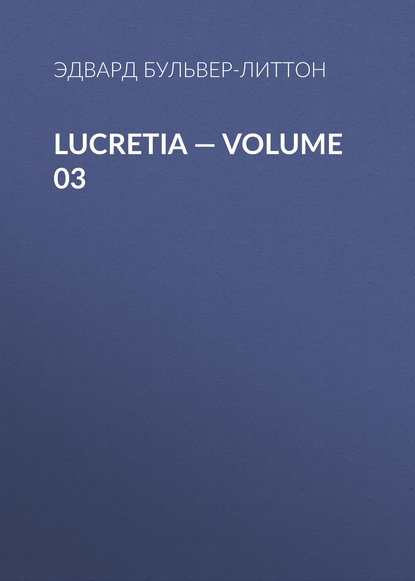По всем вопросам обращайтесь на: info@litportal.ru
(©) 2003-2025.
✖
Lucretia — Volume 03
Год написания книги
2018
Настройки чтения
Размер шрифта
Высота строк
Поля
"She had lovers, perhaps?"
"Pooh, lovers! The happiest couple ever known; you should have seen them together! I dined there last week."
"It is strange," said the lawyer.
"And he was getting on so well," muttered a hungry-looking man.
"And his place is vacant!" repeated the employee, as he quitted the crowd abstractedly.
In the house of Olivier Dalibard sits Lucretia alone, and in her own usual morning-room. The officer appointed to such tasks by the French law has performed his visit, and made his notes, and expressed condolence with the widow, and promised justice and retribution, and placed his seal on the locks till the representatives of the heir-at-law shall arrive; and the heir-at-law is the very boy who had succeeded so unexpectedly to the wealth of Jean Bellanger the contractor! But Lucretia has obtained beforehand all she wishes to save from the rest. An open box is on the floor, into which her hand drops noiselessly a volume in manuscript. On the forefinger of that hand is a ring, larger and more massive than those usually worn by women,—by Lucretia never worn before. Why should that ring have been selected with such care from the dead man's hoards? Why so precious the dull opal in that cumbrous setting? From the hand the volume drops without sound into the box, as those whom the secrets of the volume instruct you to destroy may drop without noise into the grave. The trace of some illness, recent and deep, nor conquered yet, has ploughed lines in that young countenance, and dimmed the light of those searching eyes. Yet courage! the poison is arrested, the poisoner is no more. Minds like thine, stern woman, are cased in coffers of steel, and the rust as yet has gnawed no deeper than the surface. So over that face, stamped with bodily suffering, plays a calm smile of triumph. The schemer has baffled the schemer! Turn now to the right, pass by that narrow corridor: you are in the marriage-chamber; the windows are closed; tall tapers burn at the foot of the bed. Now go back to that narrow corridor. Disregarded, thrown aside, are a cloth and a besom: the cloth is wet still; but here and there the red stains are dry, and clotted as with bloody glue; and the hairs of the besom start up, torn and ragged, as if the bristles had a sense of some horror, as if things inanimate still partook of men's dread at men's deeds. If you passed through the corridor and saw in the shadow of the wall that homeliest of instruments cast away and forgotten, you would smile at the slatternly housework. But if you knew that a corpse had been borne down those stairs to the left,—borne along those floors to that marriage- bed,—with the blood oozing and gushing and plashing below as the bearers passed with their burden, then straight that dead thing would take the awe of the dead being; it told its own tale of violence and murder; it had dabbled in the gore of the violated clay; it had become an evidence of the crime. No wonder that its hairs bristled up, sharp and ragged, in the shadow of the wall.
The first part of the tragedy ends; let fall the curtain. When next it rises, years will have passed away, graves uncounted will have wrought fresh hollows in our merry sepulchre,—sweet earth! Take a sand from the shore, take a drop from the ocean,—less than sand-grain and drop in man's planet one Death and one Crime! On the map, trace all oceans, and search out every shore,—more than seas, more than lands, in God's balance shall weigh one Death and one Crime!
Другие электронные книги автора Эдвард Джордж Бульвер-Литтон
Другие аудиокниги автора Эдвард Джордж Бульвер-Литтон
Последние дни Помпеи




 4.67
4.67












